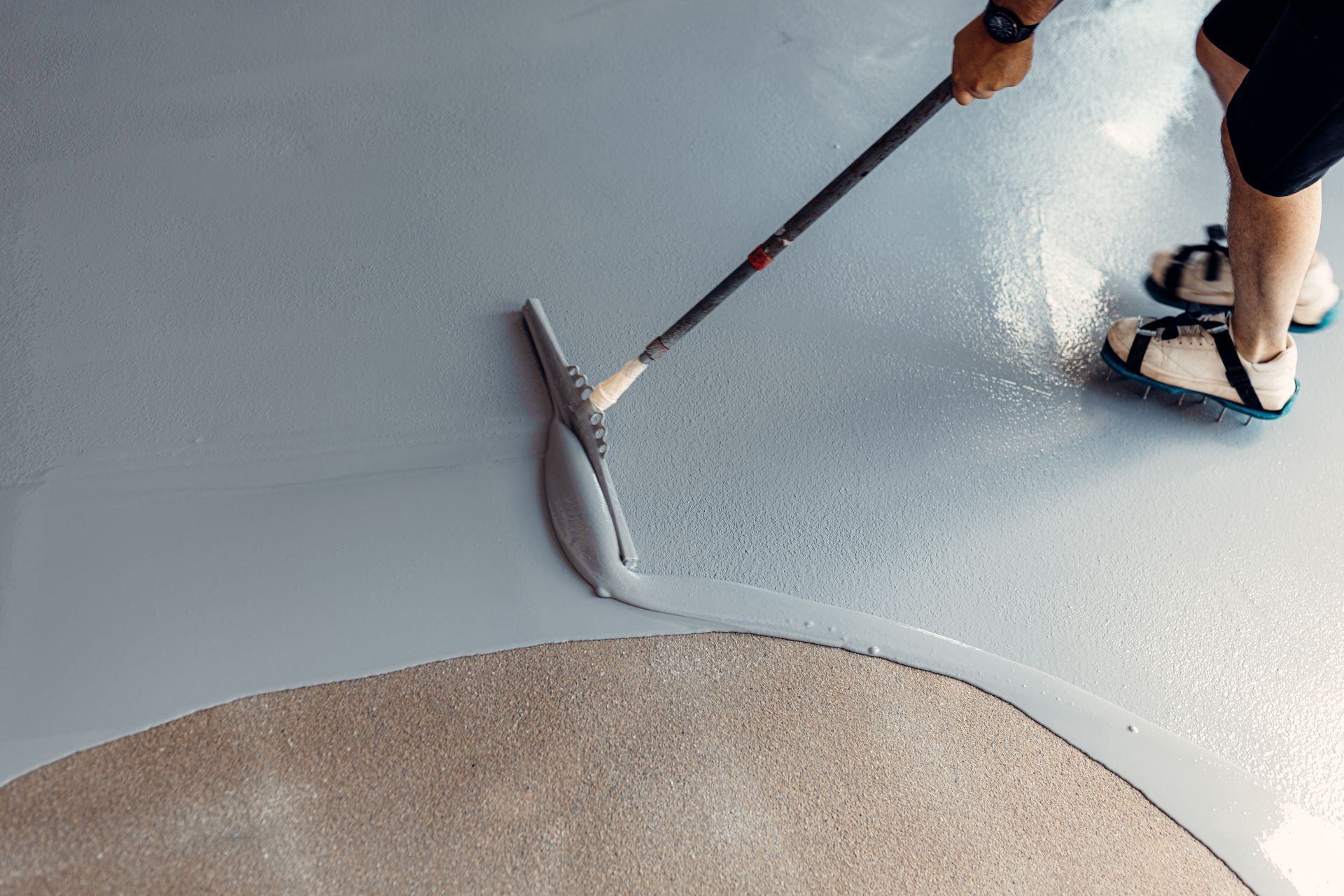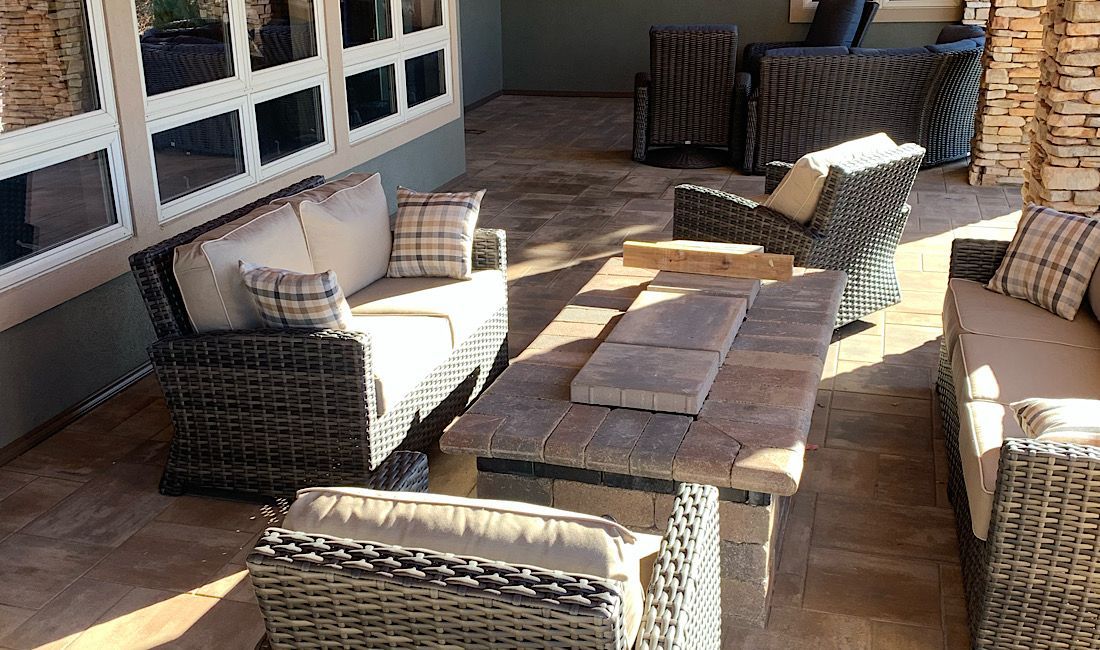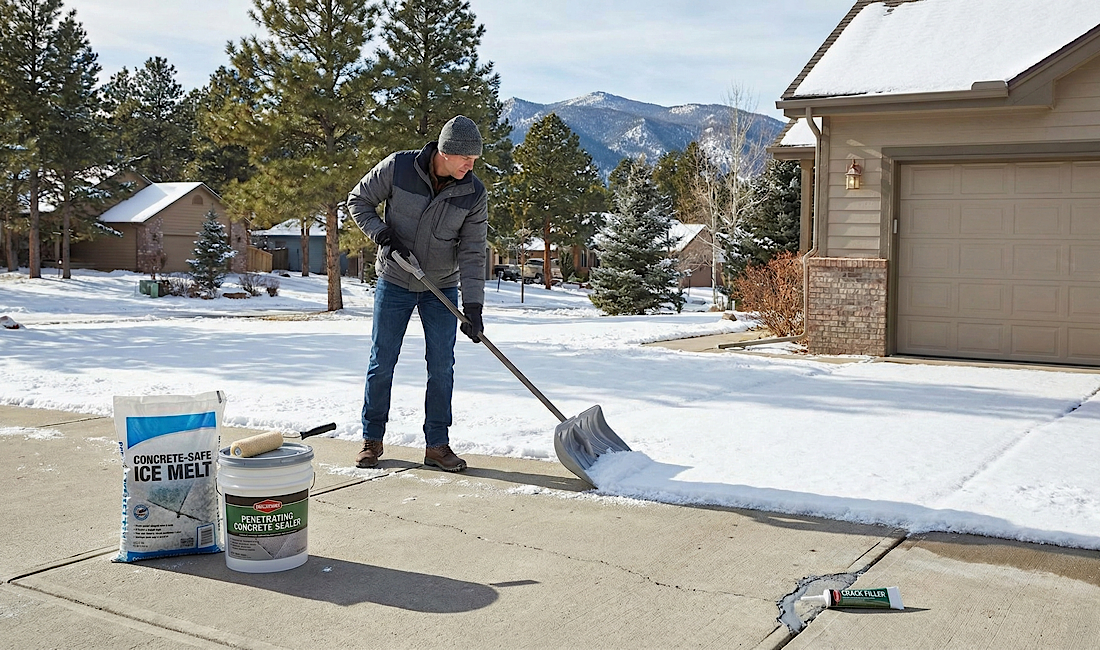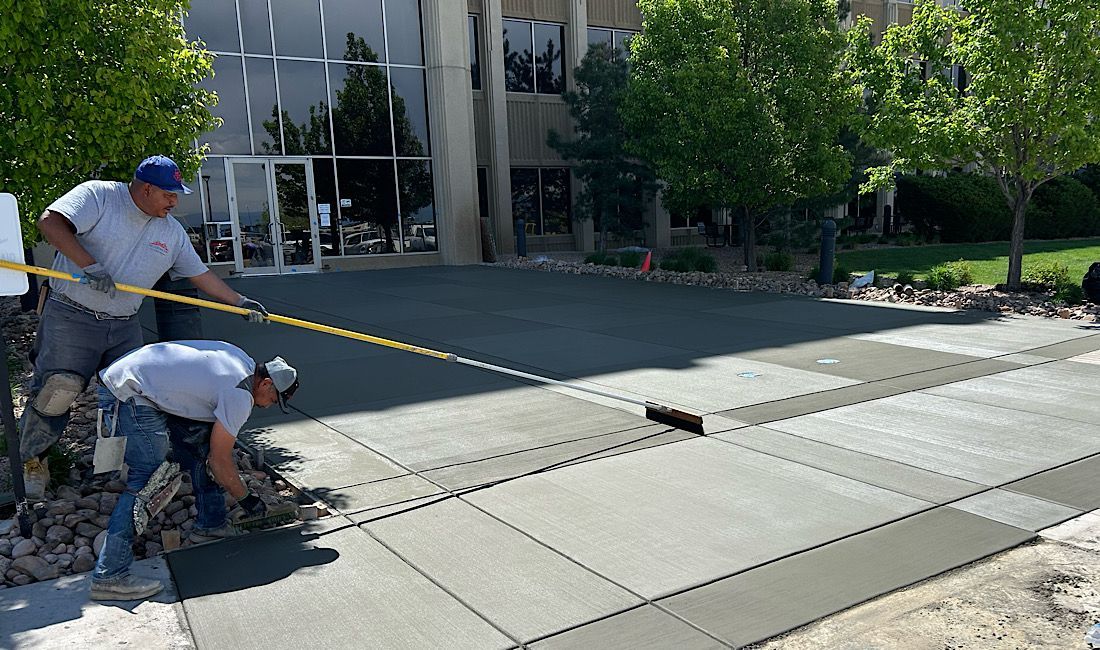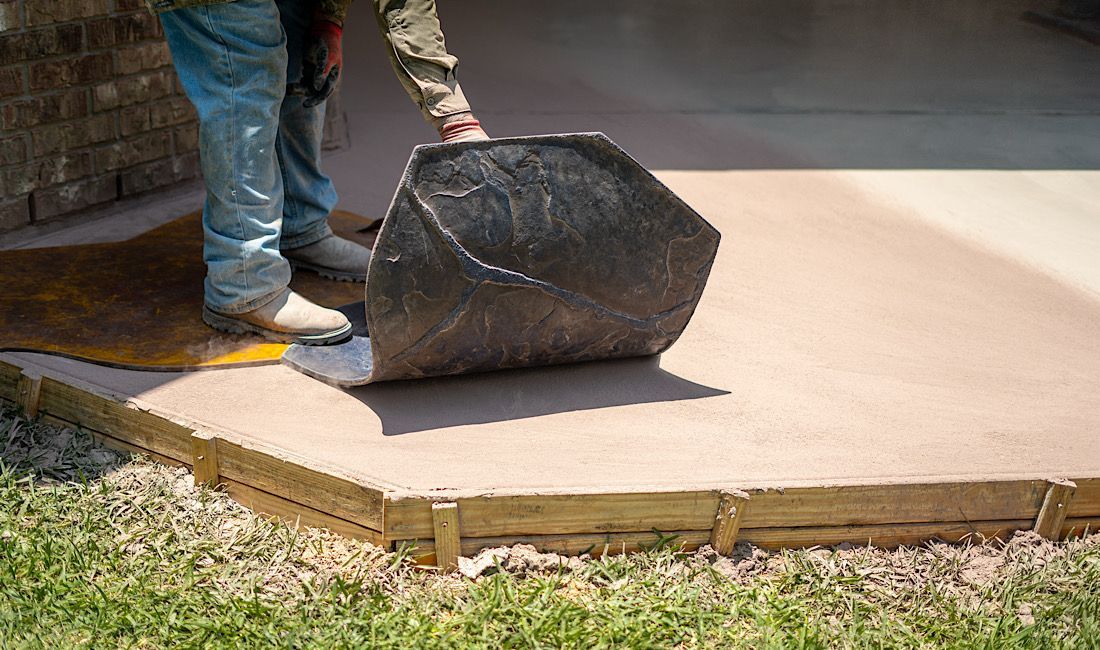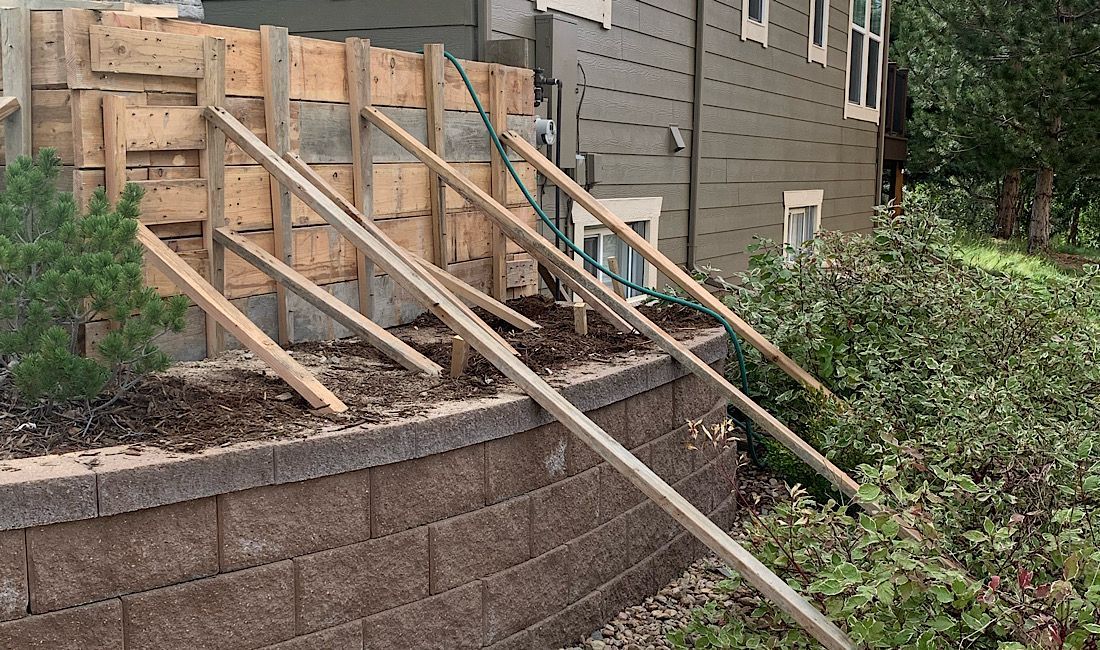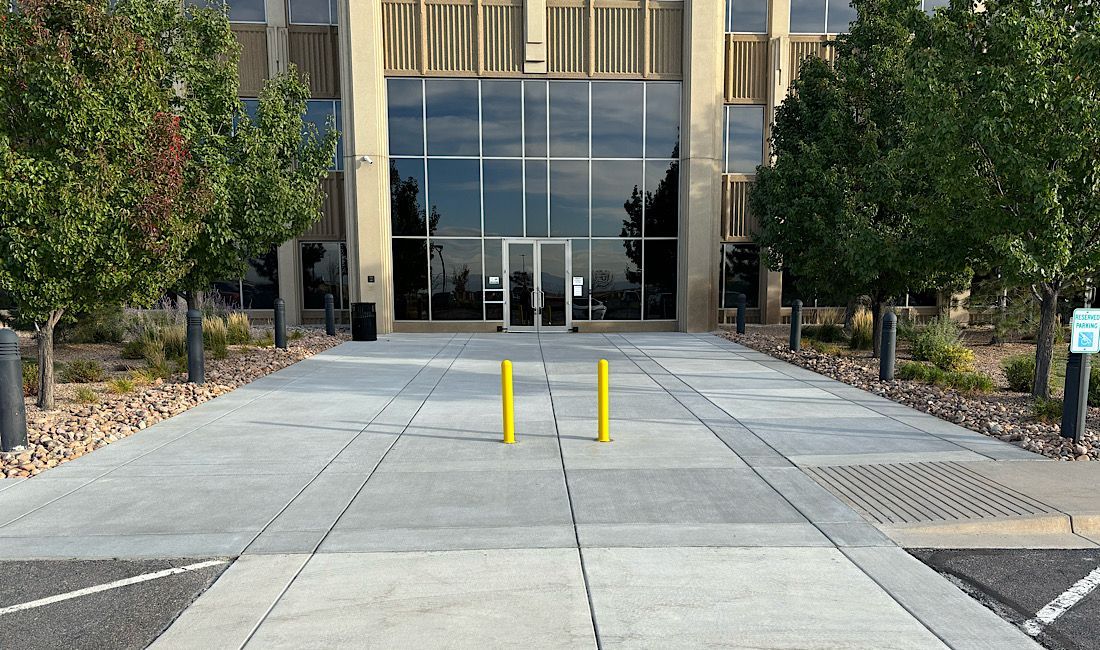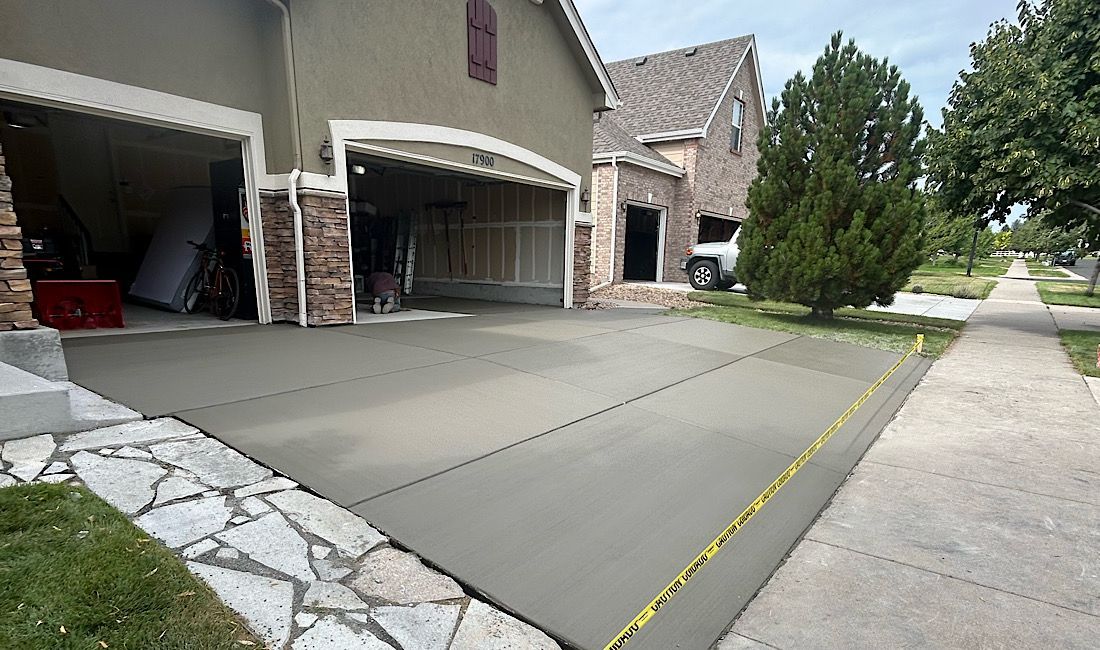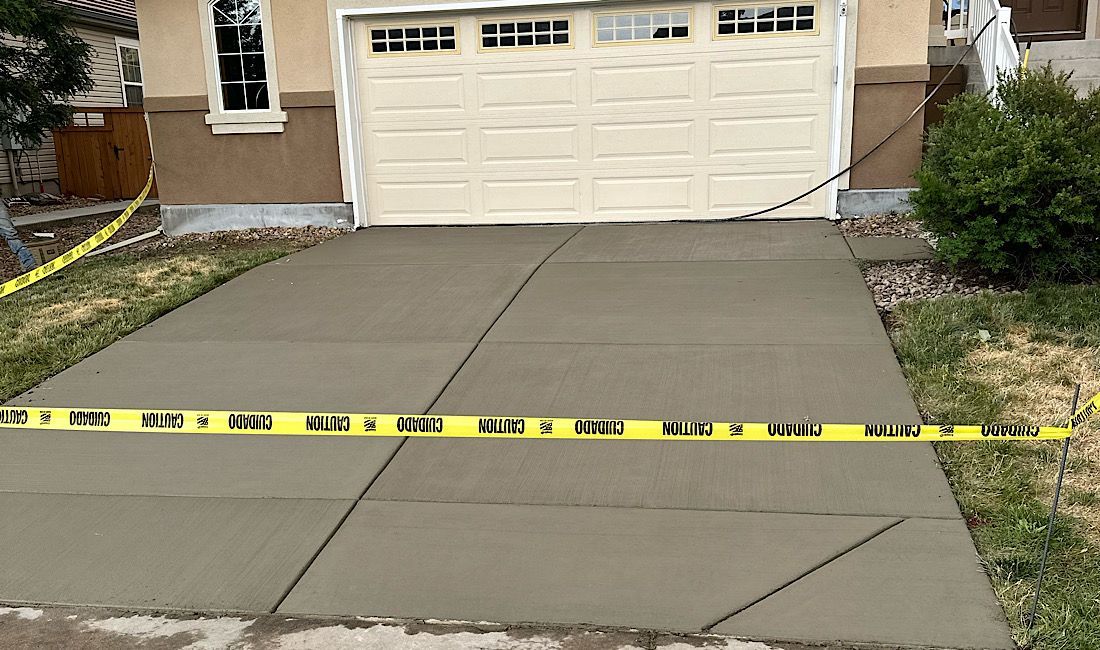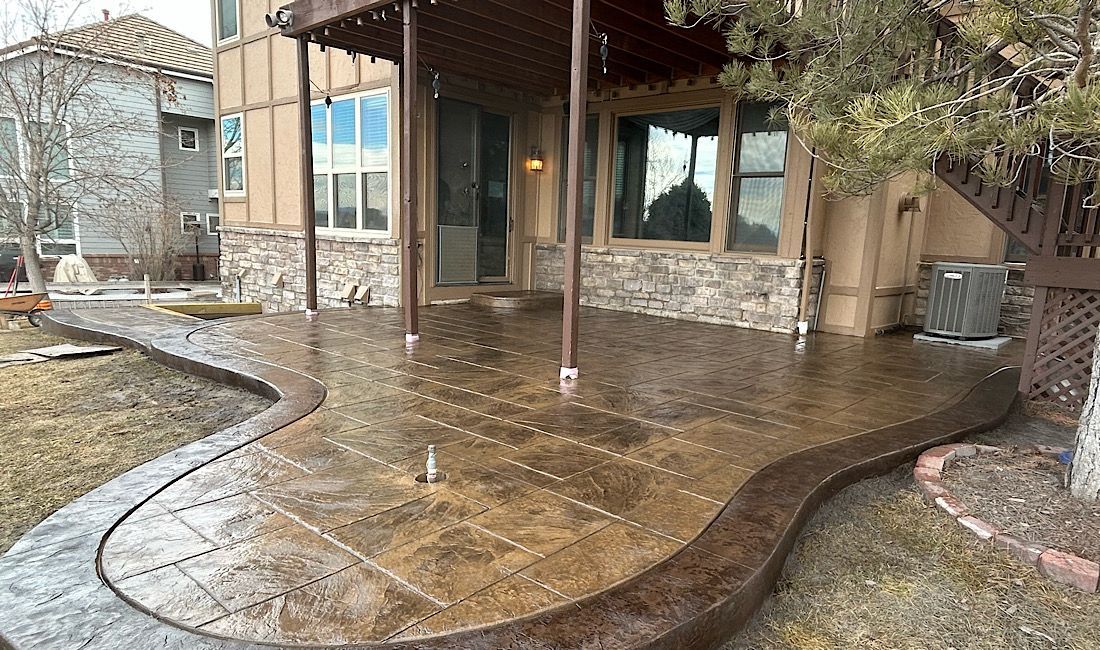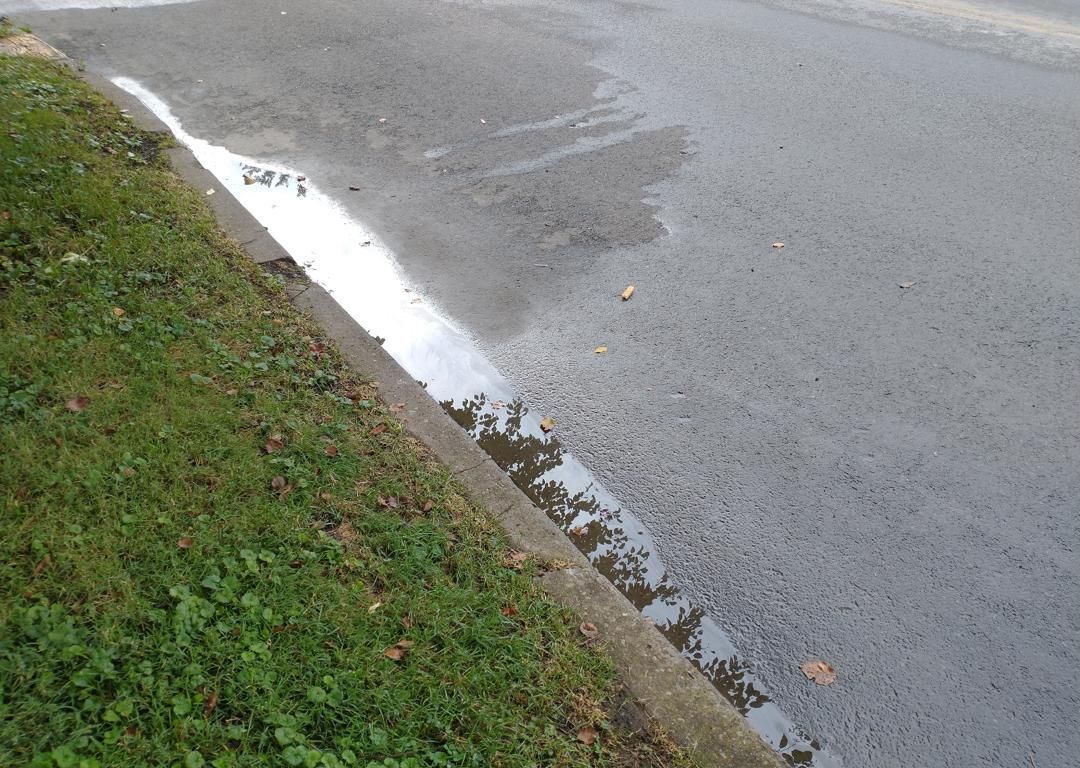
Denver’s winter weather, with its cycles of freezing and thawing, can take a toll on concrete driveways, leading to cracking, surface damage, and wear over time. With proper winterization and maintenance, homeowners can protect their driveways from freeze-thaw damage and extend their lifespan. Here’s a comprehensive guide on how to winterize concrete driveways and keep them in optimal condition.
Understanding Freeze-Thaw Damage in Concrete
The freeze-thaw cycle is one of the primary causes of winter damage to concrete. Here’s how it impacts driveways:
- Moisture Infiltration: Water enters small cracks and pores in the concrete surface.
- Freezing Expansion: When temperatures drop, the trapped water freezes and expands, creating pressure within the concrete.
- Cycle Repetition: This cycle of expansion and contraction weakens the concrete over time, causing cracks to grow and the surface to flake or chip, known as scaling.
Steps to Protect Your Concrete Driveway from Winter Damage
Taking preventive steps can make a significant difference in protecting your driveway from freeze-thaw damage. Follow these tips to safeguard your concrete driveway throughout winter.
Apply a Quality Concrete Sealant
A high-quality sealant is one of the most effective defences against winter damage. Here’s why:
- Moisture Barrier: Sealants create a protective layer, preventing water from seeping into the concrete and reducing freeze-thaw cycle effects.
- Extended Lifespan: Regular sealing (every 2–3 years) keeps concrete strong and durable, minimizing surface cracking and wear.
- Best Time to Apply: Ideally, apply a sealant in the fall before temperatures drop below freezing.
Maintain Proper Drainage Around the Driveway
Poor drainage can lead to pooling water, which increases the risk of freeze-thaw damage. To improve drainage:
- Direct Downspouts Away: Ensure downspouts and gutters are positioned to divert water away from the driveway.
- Remove Snow Promptly: Clear snow regularly to prevent it from melting and refreezing on the concrete.
- Level the Landscape: Make sure nearby landscaping doesn’t slope towards the driveway, which could cause water runoff.
Use De-icing Products Carefully
While de-icing products can improve safety by reducing ice, some chemicals can damage concrete:
- Choose Concrete-Safe Products: Opt for chloride-free de-icers, which are less harsh on concrete surfaces.
- Avoid Overuse: Use sparingly to minimize moisture absorption and prevent chemical breakdown of the concrete surface.
Inspect and Repair Cracks
Inspecting your driveway before winter helps catch small cracks before they worsen:
- Fill Small Cracks: Use a concrete repair product to fill any visible cracks, preventing water infiltration and further expansion during freeze-thaw cycles.
- Professional Repair for Larger Cracks: Larger or deeper cracks may require professional attention to ensure lasting repairs that hold up against winter conditions.
Regular Maintenance Throughout Winter
Ongoing maintenance can help keep your driveway in top shape, even through tough weather:
- Clear Debris: Keep the driveway clear of leaves, dirt, and other debris that can trap moisture.
- Shovel Carefully: Use plastic shovels instead of metal ones to prevent accidental scratches and chipping.
Concrete driveways are an investment that adds both beauty and functionality to your home. By following these winterization tips, homeowners can protect their concrete driveways from the damaging effects of Denver’s freeze-thaw cycle and ensure they remain durable and visually appealing.
For expert driveway sealing and repair services,
contact Creteworx today to keep your concrete driveway protected and looking its best all winter long.
